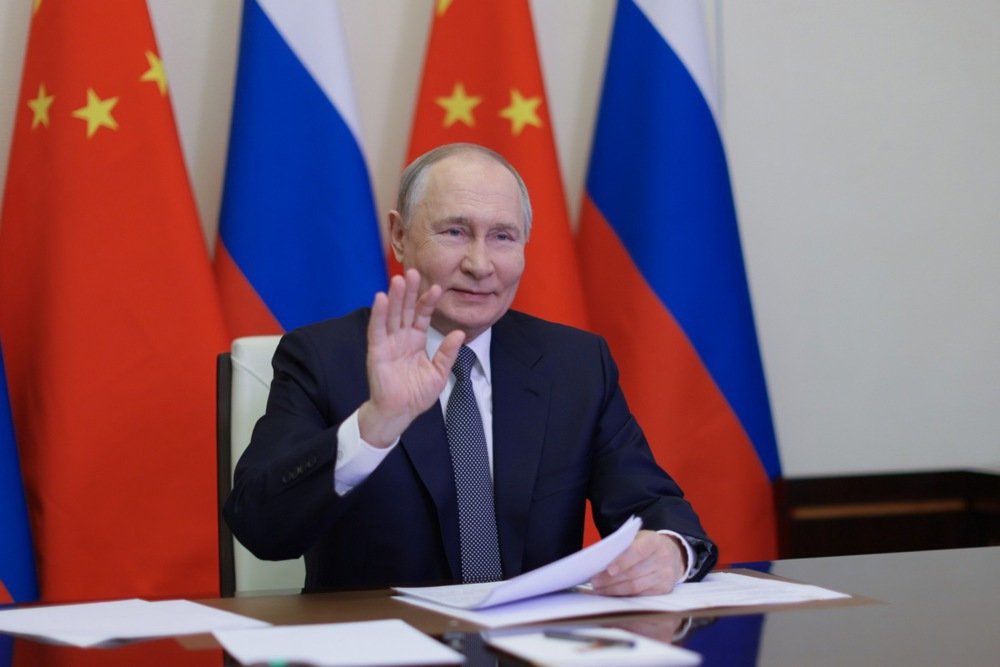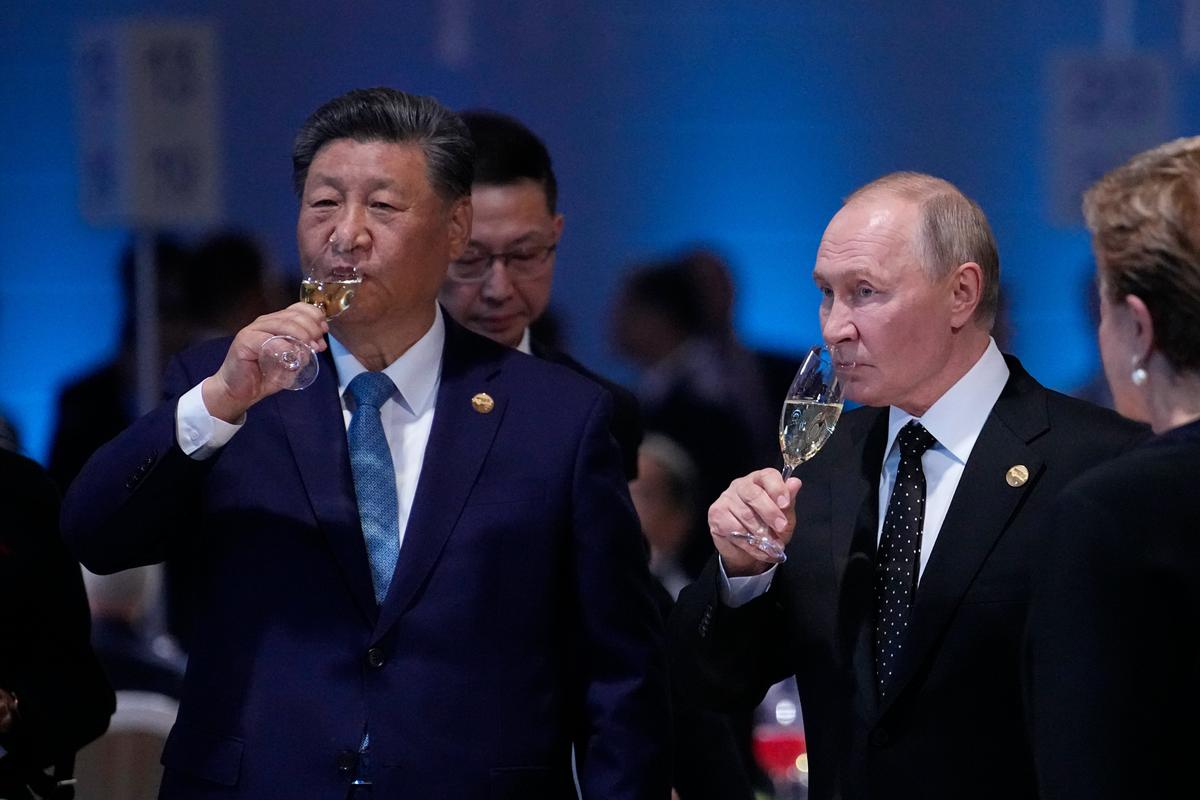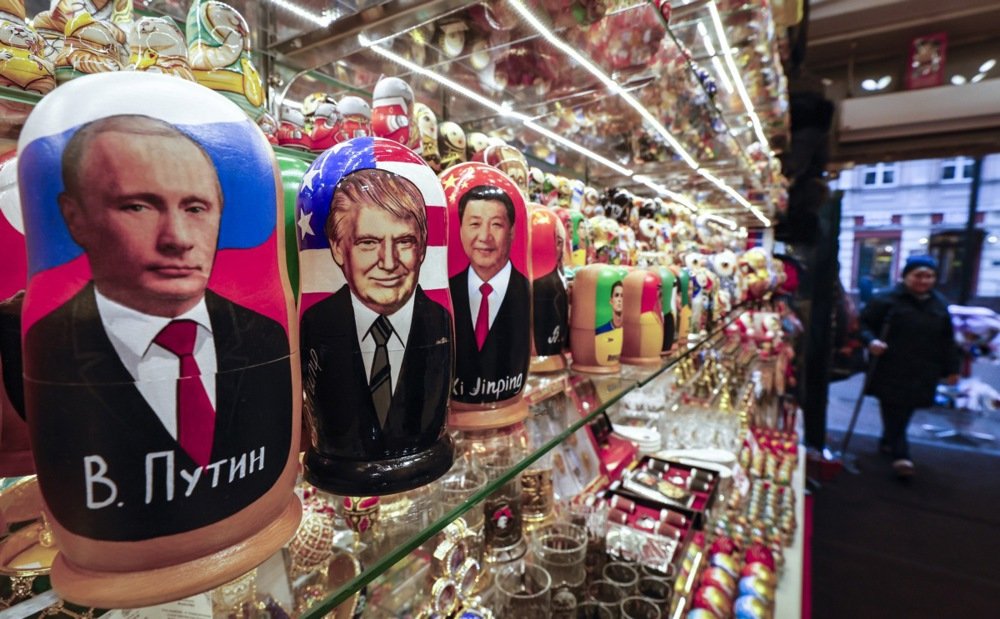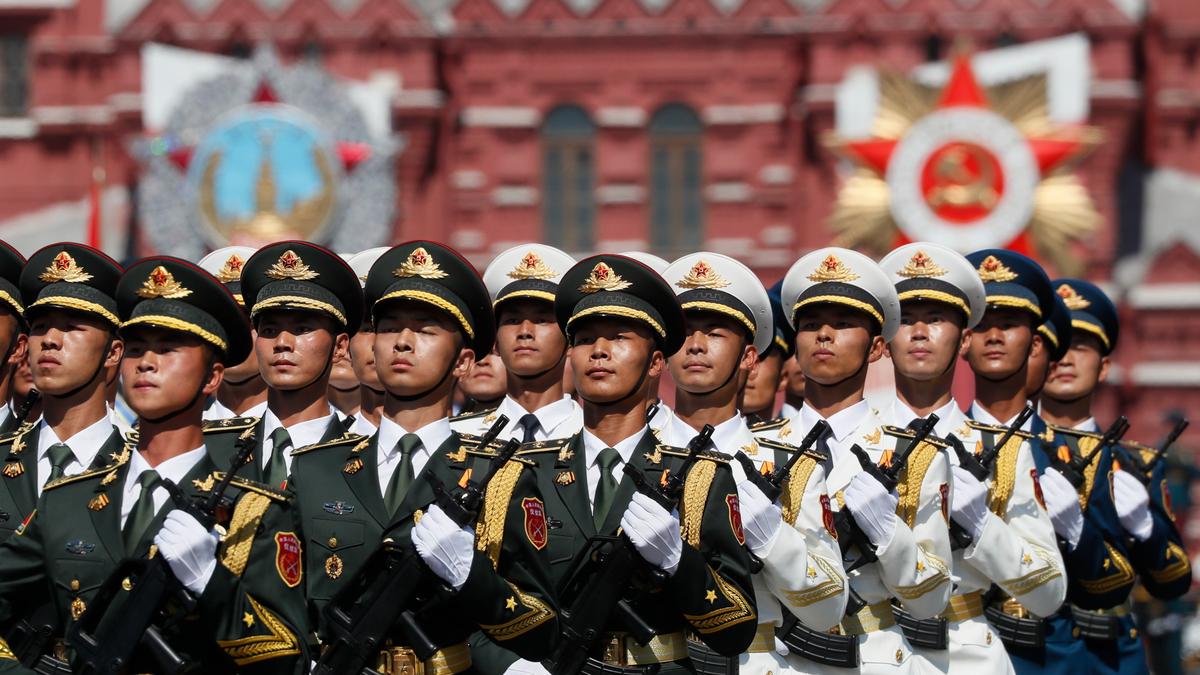In an October interview with right-wing pundit Tucker Carlson, US President Donald Trump argued that the United States under Joe Biden had, in his mind erroneously, pushed China and Russia together. Separating the two powers would be a priority of his administration. “I’m going to have to un-unite them, and I think I can do that, too,” Trump said.

Linggong Kong
Ph.D. Candidate in Political Science, Auburn University
Since returning to the White House, Trump has been eager to negotiate with Russia, hoping to quickly bring an end to the war in Ukraine. One interpretation of this Ukraine policy is that it serves what Trump was getting at in his comments to Carlson. Pulling the US out of the European conflict and repairing ties with Russia, even if it means throwing Ukraine under the bus, can be seen within the context of a shift of America’s attention to containing Chinese power.
Indeed, after a recent call with Vladimir Putin, Trump told Fox News: “As a student of history, which I am — and I’ve watched it all — the first thing you learn is you don’t want Russia and China to get together.”
Many in Beijing view Trump’s handling of the Russia-Ukraine war — and his foreign policy more broadly — as a projection of weakness, not strength.
The history Trump alludes to is the strategy of the Nixon era, in which the US sought to align with China as a counterbalance to the Soviet Union, encouraging a split between the two communist entities in the process.
Yet if creating a fissure between Moscow and Beijing is indeed the ultimate aim, Trump’s vision is, I believe, both naive and shortsighted. Not only is Russia unlikely to abandon its relationship with China, but many in Beijing view Trump’s handling of the Russia-Ukraine war — and his foreign policy more broadly — as a projection of weakness, not strength.
Although Russia and China have at various times in the past been adversaries when it suited their interests, today’s geopolitical landscape is different from the Cold War era in which the Sino-Soviet split occurred. The two countries, whose relationship has grown steadily close since the fall of the Soviet Union,have increasingly shared major strategic goals — chief among them, challenging the Western liberal order led by the US.

Vladimir Putin greets Xi Jinping during a video call, 21 January 2025. Photo: EPA-EFE / GAVRIIL GRIGOROV / SPUTNIK / KREMLIN POOL
Both China and Russia have, in recent years, adopted an increasingly assertive stance in projecting military strength: China in the South China Sea and around Taiwan, and Russia in former Soviet satellite states, including Ukraine.
In response, a unified stance formed by Western governments to counter China and Russia’s challenge has merely pushed the two countries closer together.
In February 2022, just as Russia was preparing its invasion of Ukraine, Vladimir Putin and Xi Jinping announced a “friendship without limits” — in a show of unified intent against the West.
China has since become an indispensable partner for Russia, serving as its top trading partner for both imports and exports. In 2024, bilateral trade between China and Russia reached a record high of $237 billion (€219 billion based on the average exchange rate for 2024), and Russia now relies heavily on China as a key buyer of its oil and gas. This growing economic interdependence gives China considerable leverage over Russia and makes any US attempt to pull Moscow away from Beijing economically unrealistic.
That doesn’t mean the Russian-Chinese relationship is inviolable; areas of disagreement and divergent policy remain.
Indeed, there are areas that Trump could exploit if he were to succeed in driving a wedge between the two countries. For example, it could serve Russia’s interests to support US efforts to contain China and discourage any expansionist tendencies in Beijing — such as through Moscow’s strategic ties with India, which China views with some alarm — especially given that there are still disputed territories along the Chinese-Russian border.
While Putin would likely gladly accept a Trump-brokered peace deal that sacrifices Ukraine’s interests in favor of Russia, that doesn’t mean he would be rushing to embrace some kind of broader call to unite against China.
Putin isn’t naive. He knows that with Trump in office, the deep-seated Western consensus against Russia — including a robust, if leaky, economic sanctions regime — isn’t going away anytime soon. In Trump’s first term, the US president likewise appeared to be cozying up to Putin, but there is an argument that he was even tougher on Russia, in terms of sanctions, than the administrations of Barack Obama or Joe Biden.
So, while Putin would likely gladly accept a Trump-brokered peace deal that sacrifices Ukraine’s interests in favor of Russia, that doesn’t mean he would be rushing to embrace some kind of broader call to unite against China. Putin will know the extent to which Russia is now reliant economically on China, and subservient to it militarily. In the words of Russian political analyst Alexander Gabuev, Moscow is now a “vassal” or, at best, a junior partner to Beijing.
China for its part views Trump’s peace talks with Russia and Ukraine as a sign of weakness that potentially undermines US hawkishness toward China.

Vladimir Putin and Xi Jinping drink champagne during a reception at the BRICS summit in Kazan, Russia, 23 October 2024. Photo: EPA-EFE / ALEXANDER ZEMLIANICHENKO / POOL
While some members of the U.S. administration are undoubtedly hawkish on China — Secretary of State Marco Rubio views the country as the “most potent and dangerous” threat to American prosperity — Trump himself has been more ambivalent. He may have slapped new tariffs on China as part of a renewed trade war, but he has also mulled a meeting with President Xi Jinping in an apparent overture.
Beijing recognises Trump’s transactional mindset, which prioritises short-term, tangible benefits over more predictable long-term strategic interests requiring sustained investment.
This changes the calculation over whether the US may be unwilling to bear the high costs of defending Taiwan. Trump, in a deviation from his predecessor, has failed to commit the country to defending Taiwan, the self-governing island claimed by Beijing.
Rather, Trump had indicated that if the Chinese government were to launch a military campaign to “reunify” Taiwan, he would opt instead for economic measures like tariffs and sanctions. His apparent openness to trade Ukraine territory for peace now has made some in Taiwan concerned over Washington’s commitment to long-established international norms.
China has taken another key lesson from Russia’s experience in Ukraine: The US-led economic sanctions regime has serious limits.
Even under sweeping Western sanctions, Russia was able to stay afloat through subterfuge and with support from allies like China and North Korea. Moreover, China remains far more economically intertwined with the West than Russia, and its relatively dominant global economic position means that it has significant leverage to combat any US-led efforts to isolate the country economically.
Indeed, as geopolitical tensions have driven the West to gradually decouple from China in recent years, Beijing has adapted to the resulting economic slowdown by prioritising domestic consumption and making the economy more self-reliant in key sectors.
That in part also reflects China’s significant global economic and cultural strength. Coupled with this has been a domestic push to win countries in the Global South around to China’s position. Beijing has secured endorsements from 70 countries officially recognising Taiwan as part of China.

Matryoshka dolls depicting Vladimir Putin, Donald Trump and Xi Jinping on display at a gift shop in Moscow, 6 November 2024. Photo: EPA-EFE / YURI KOCHETKOV
As such, Trump’s plan to end the Russia-Ukraine war by favouring Russia in the hope of drawing it into an anti-China coalition is, I believe, likely to backfire.
While Russia may itself harbour concerns about China’s growing power, the two country’s shared strategic goal of challenging the Western-led international order — and Russia’s deep economic dependence on China — make any US attempt to pull Moscow away from Beijing unrealistic.
Moreover, Trump’s approach exposes vulnerabilities that China could exploit. His transactional and isolationist foreign policy, along with his encouragement of right-wing parties in Europe, may strain relations with European Union allies and weaken trust in American security commitments. Beijing, in turn, may view this as a sign of declining US influence, giving China more room to manoeuvre, noticeably in regard to Taiwan.
Rather than increasing the chances of a Sino-Russia split, such a shift could instead divide an already fragile Western coalition.
This article was first published by The Conversation. Views expressed in opinion pieces do not necessarily reflect the position of Novaya Gazeta Europe
Join us in rebuilding Novaya Gazeta Europe
The Russian government has banned independent media. We were forced to leave our country in order to keep doing our job, telling our readers about what is going on Russia, Ukraine and Europe.
We will continue fighting against warfare and dictatorship. We believe that freedom of speech is the most efficient antidote against tyranny. Support us financially to help us fight for peace and freedom.
By clicking the Support button, you agree to the processing of your personal data.
To cancel a regular donation, please write to [email protected]

